Graham Reid | | 2 min read
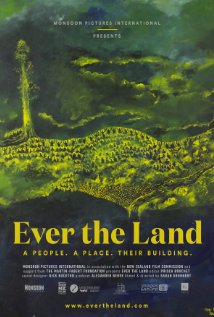
At the start of this deliberately slow but ultimately engaging documentary about this country's first “sustainable building”, a kaumatua addresses his Ngai Tuhoe people.
The Tuhoe – who never signed the Treaty of Waitangi and have had a fractious relationship with the Crown and more recently the police in the infamous “Uruwera Four” sedition trial — are a proud and sometimes remote people. Their land in the Uruweras doesn't get too many visitors and it feels very much a place apart.
The Tuhoe are known as “the people of the mist”, a phrase which can be read as literal and metaphorical.
The occasion for the kaumauta's address however is the fact the Crown has deeded back to the people some of their ancestral land and now, he says, is the time to look forward and build a long overdue community hall.
“Some of us were born angry and want to fight forever,” he says before citing a proverb about a greenstone door which looks back to the past and closes it, and looks forward to the future and opens it.
If it were only that easy, as this insightful doco shows.
The idea of a handsome sustainable building with no environmental impact (solar panels, its own water) and no materials which would be unnatural, as well as a place which encompasses the spiritual needs of the people as much as their physical ones, means outsiders — architects and engineers — come into the community.
But the anger towards Pakeha still simmers and sometimes boils to the surface.
Some Maori are keen to let the hired guests know who is boss.
The wharehou however proves to be not just another building but a statement about respect for the people and the land, and negotiating that is a cautious process.
That Tuhoe were on the sharp end of Pakeha history is in no doubt – minister of Treay negotiations Chris Finlayson admits to the Crown guilt and illegal confiscation of land — and quite rightly many Tuhoe remain suspicious and resentful.
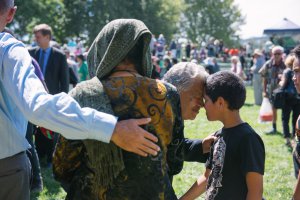 And there are schisms within the iwi also. But the process
of discussion also proves that slow in the fast-forward 21st
century can actually bear longer lasting results.
And there are schisms within the iwi also. But the process
of discussion also proves that slow in the fast-forward 21st
century can actually bear longer lasting results.
But the building also becomes a living and physical emblem of something else, a symbol of co-operation.
Filmed with discretion by the infinitely patient German director Grohnert who and allows ordinary people to go about their lived unhindered makes for a film which is content to observe and let the viewer be taken into the unique world of Tuhoe.
In the deliberate absence of interviews and narration, the story unfolds in a naturalistic way which suits the subject.
Magnificent though the final result is, the story here is the build as much as the building.
And both are well worth seeing.
EVER THE LAND is screening in selected cinemas nationwide now.
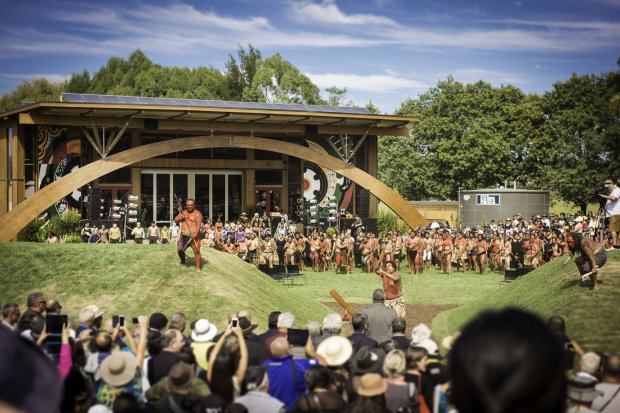


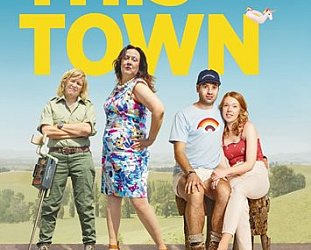
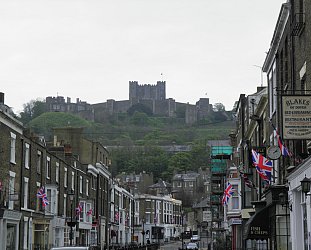
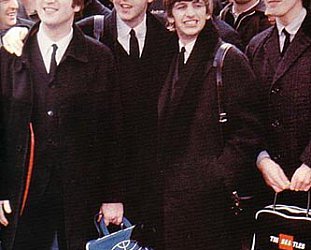
post a comment